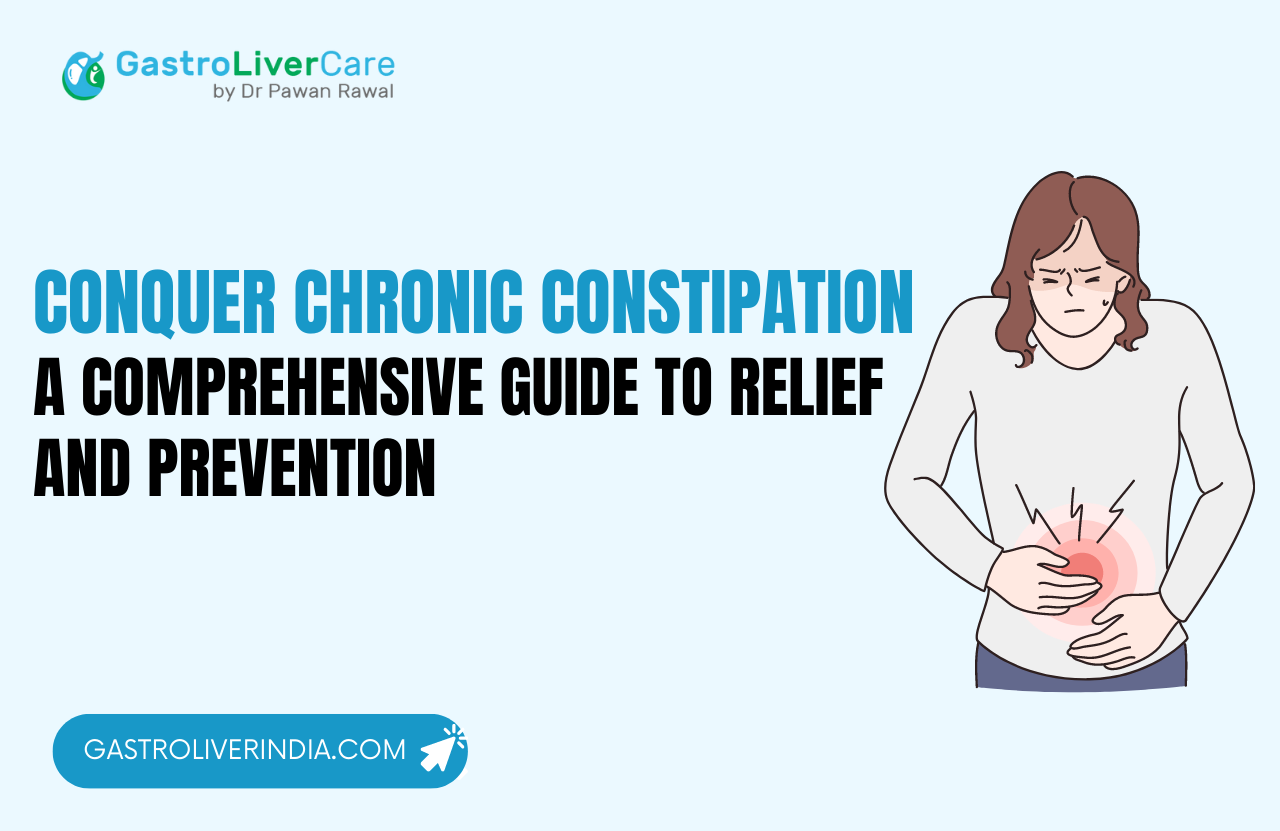Chronic constipation is referred to as when constipation persists for a few weeks or longer and is accompanied by infrequent bowel movements or trouble passing faeces. When a person has less than three bowel movements in a given week, constipation is typically diagnosed. Many people have constipation on a more infrequent basis, but other people experience chronic constipation, which can make it challenging for them to perform everyday tasks. It increases the likelihood that a person would strain excessively when trying to urinate.
The course of treatment is somewhat influenced by the underlying aetiology of the problem. On the other side, there are also situations when the underlying cause is never discovered.
Symptoms of Chronic Constipation
Constipation is characterised by several symptoms, including the ones listed below:
1. Only eliminating three times a week or less.
2. passing faeces that are lumpy or challenging.
3. Struggling despite your best attempts to have bowel movements
4. Feeling as if your rectum is being blocked and stopping you from having bowel movements.
5. Having the impression that you can’t completely discharge the faeces from your rectum.
6. Needing help to empty your rectum, such as pressing with your hands on your stomach and using a finger to push the stool out; this is an indication.
If you have experienced two or more of these symptoms for at least the last three months, you may have chronic constipation.
When ought one to visit a Gastroenterologist?
Make an appointment with a Gastroenterologist if you observe persistent changes in your bowel habits that you cannot explain. You should schedule a consultation with the best gastroenterologist India has to offer so they can handle your really serious case of recurrent constipation.
Treatment and Prevention of Constipation
The simplest and most effective methods for treating and preventing constipation include altering your diet and increasing your level of activity.
1. Incorporate entire fruits, vegetables, and whole grains into your diet.
2. Eat meals that are high in fibre and speak with a doctor before taking a fibre supplement.
3. Include bran cereal and prunes in your everyday diet.
4. Make sure you drink lots of water by doing so frequently.
5. To prevent dehydration, stay away from alcoholic beverages and caffeine.
6. Engage in regular exercise.
7. Consider including probiotics, such as those in kefir and yoghurt with live active cultures, in your diet.
8. Practise having your bowel motions at the same time each day.
According to studies, people with chronic constipation may benefit from taking probiotic supplements. Make sure to drink lots of water every day if you choose to take fibre supplements. Fluid aid can improve the performance of fibre.
In conclusion, chronic constipation is a persistent and challenging condition that can significantly affect a person’s daily life. Effective management typically involves a combination of lifestyle changes, dietary modifications, and, if necessary, medical interventions. Seeking professional guidance is essential for a personalized treatment plan. With the right approach, individuals can find relief and improve their overall quality of life, ensuring that chronic constipation no longer hinders their well-being.






